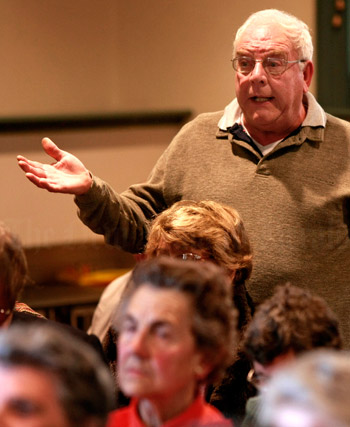Story summary
What are interest groups?
Interest groups are sometimes called pressure or lobby groups, because they pressure (lobby) political decision-makers. As New Zealand’s population has grown and society has become more diverse, the number of interest groups has increased. The largest are well resourced, with national offices and paid staff, but small groups are run by volunteers.
Interest groups have three main functions:
- advocacy – assessing proposed laws, making submissions, lobbying politicians and influencing public opinion
- policy formulation – researching and developing policy
- supporting members – providing material benefits, information and advice to members.
Wellington is the political capital, so many lobbyists are based there.
Economic interest groups
Economic interest groups try to gain economic advantage for their members.
- In the 19th century groups lobbied for roads and railways in their local areas. They were the precursors of progress leagues, which promoted particular towns or regions.
- Trade unions were politically powerful in the 20th century, but had less influence from the 1990s.
- Federated Farmers is a farmer lobby group.
- Business New Zealand and the New Zealand Initiative (formerly the Business Roundtable) promote the interests of business.
Cause interest groups
Some groups lobby the government over particular issues.
- The 19th-century Women’s Christian Temperance Union aimed to reduce harm caused by alcohol, and fought for votes for women.
- Environmental groups have included 19th-century scenery preservation societies and, later, Forest and Bird.
- The Society for the Protection of the Unborn Child (SPUC) opposed abortion.
- Ngā Tamatoa, a Māori activist group, lobbied for Māori language teaching in schools in the 1970s.
Consumer interest groups
Consumer groups work for the rights and welfare of consumers. Some are linked with particular industries.
- Consumer New Zealand, founded in 1959, researches and reports on consumer goods and services.
- Welfare-related consumer groups have included Action on Smoking and Health (ASH), which aims to prevent death and diseases caused by smoking; Fight the Obesity Epidemic, which aimed to promote healthy food and decrease obesity; and the Child Poverty Action Group, which lobbies against child poverty.





